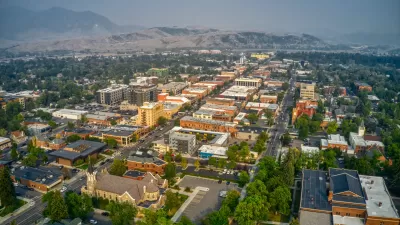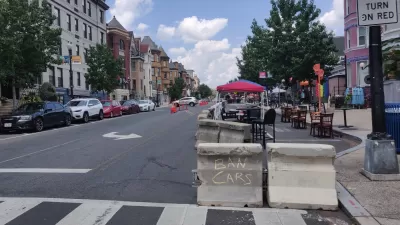Over the last six months some of my blog entries have highlighted plans and places. This month I turn to processes that are important in planning. This is a bit trickier than plans and places as the web presence of processes tends to be dominated by project examples and how-to instructions. It’s also hard from the web to get a sense of how processes have developed over time—for example what passes as rational comprehensive planning today, complete with numerous participatory processes and evaluation strategies, is quite different from the much criticized technical model of the 1950s and 1960s. Of course that’s a good reason to go to planning school.
Over the last six months some of my blog entries have highlighted plans and places. This month I turn to processes that are important in planning. This is a bit trickier than plans and places as the web presence of processes tends to be dominated by project examples and how-to instructions. It's also hard from the web to get a sense of how processes have developed over time-for example what passes as rational comprehensive planning today, complete with numerous participatory processes and evaluation strategies, is quite different from the much criticized technical model of the 1950s and 1960s. Of course that's a good reason to go to planning school. With those caveats, below I list some useful process links.
- Dr. Paul Johnson's Glossary of Political Economy Terms includes a number of process definitions including incrementalism; rational comprehensive models; systems theory; organizational process; and bureaucracy. More detail can be found in specialist works like The International Encyclopedia of Social and Behavioral Sciences (ed. Neil J. Smelser and Paul B. Baltes, 2001, Elsevier) but such volumes are typically only available via subscription. Dr. Johnson is to be thanked for making his site freely available.
- One of my favorite participation pages is People and Participation.net at http://www.peopleandparticipation.net/display/Involve/Home. You need to register for some features but it is free. Their Process Planner is a really nifty tool that suggests options for participation given the type of process, available resources, political support, and prior work: http://www.peopleandparticipation.net/display/ProcessPlanner/Home. The range of potential methods is extensive: http://www.peopleandparticipation.net/display/Methods/browse+methods
- Community Planning.net, a project of Nick Wates Associates, has another great list of methods with a leaning toward design: http://www.communityplanning.net/methods/methods.php. The site also includes downloadable forms (in the toolbox), scenarios, project examples, and a lot more.
- The World Habitat Awards takes a best practices approach. Its web site lists award winners and finalists back to 1986 in a searchable database: http://www.worldhabitatawards.org/winners-and-finalists/?lang=00. This site is international in scope and covers a wide range of project and plan types.

Maui's Vacation Rental Debate Turns Ugly
Verbal attacks, misinformation campaigns and fistfights plague a high-stakes debate to convert thousands of vacation rentals into long-term housing.

Planetizen Federal Action Tracker
A weekly monitor of how Trump’s orders and actions are impacting planners and planning in America.

In Urban Planning, AI Prompting Could be the New Design Thinking
Creativity has long been key to great urban design. What if we see AI as our new creative partner?

Massachusetts Budget Helps Close MBTA Budget Gap
The budget signed by Gov. Maura Healey includes $470 million in MBTA funding for the next fiscal year.

Milwaukee Launches Vision Zero Plan
Seven years after the city signed its Complete Streets Policy, the city is doubling down on its efforts to eliminate traffic deaths.

Portland Raises Parking Fees to Pay for Street Maintenance
The city is struggling to bridge a massive budget gap at the Bureau of Transportation, which largely depleted its reserves during the Civd-19 pandemic.
Urban Design for Planners 1: Software Tools
This six-course series explores essential urban design concepts using open source software and equips planners with the tools they need to participate fully in the urban design process.
Planning for Universal Design
Learn the tools for implementing Universal Design in planning regulations.
Gallatin County Department of Planning & Community Development
Heyer Gruel & Associates PA
JM Goldson LLC
City of Camden Redevelopment Agency
City of Astoria
Transportation Research & Education Center (TREC) at Portland State University
Jefferson Parish Government
Camden Redevelopment Agency
City of Claremont






























